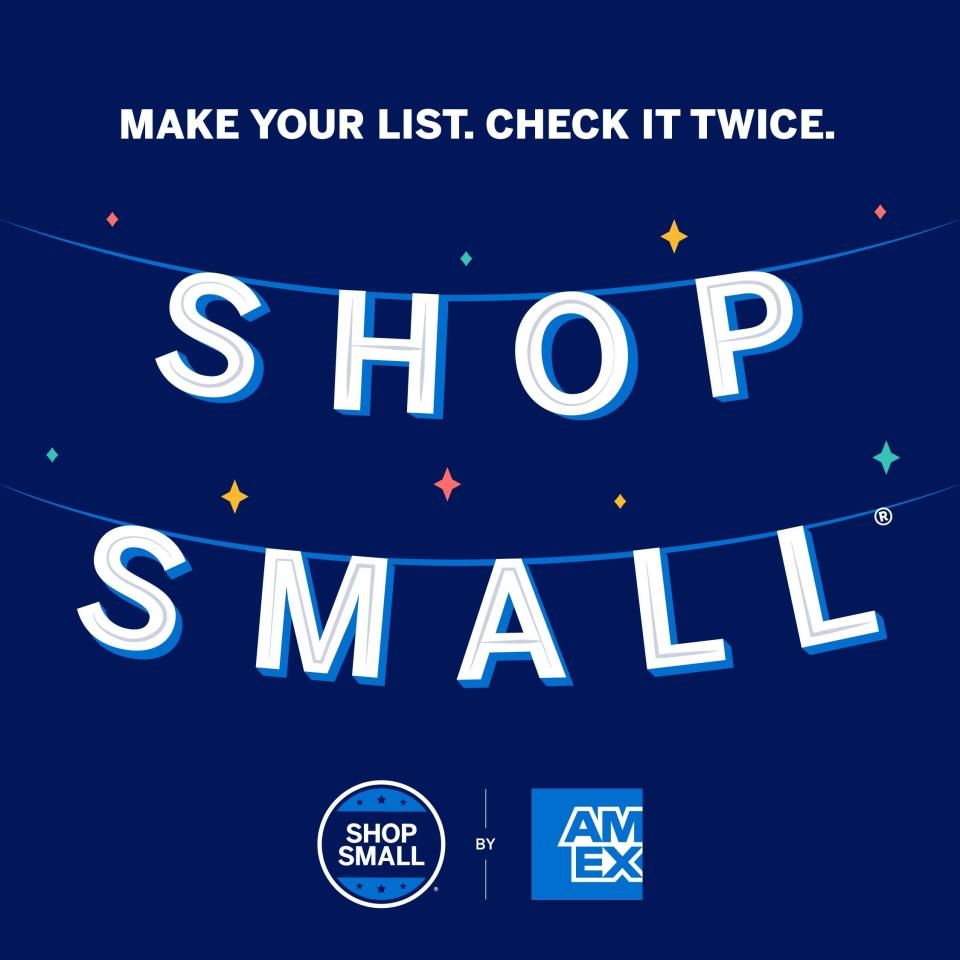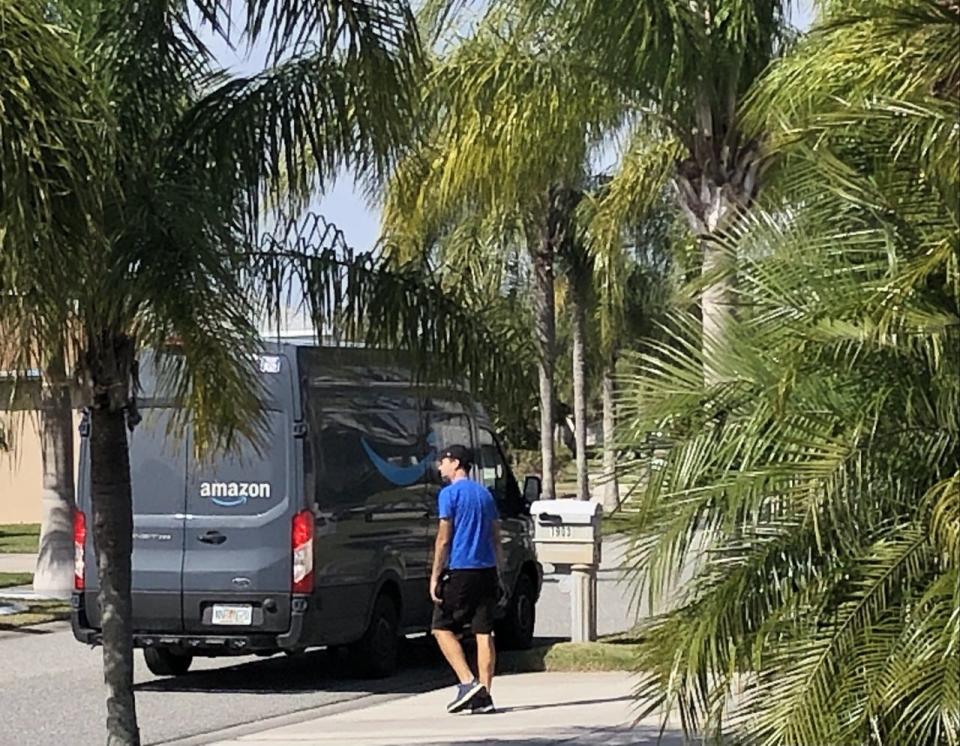Retail trends for Christmas season, including 166.3 million people shopping this weekend
A record 166.3 million people are planning to shop from Thanksgiving Day through the Monday after Thanksgiving this year, according to a new National Retail Federation survey.
That's 8 million more people than last year — and is the highest estimate since the National Retail Federation began tracking this data in 2017.
“While there is much speculation about inflation’s impact on consumer behavior, our data tells us that this Thanksgiving holiday weekend will see robust store traffic, with a record number of shoppers taking advantage of value pricing,” NRF President and Chief Executive Officer Matthew Shay said, in announcing the survey results.
According to the survey, more than 69% of holiday shoppers plan to shop during Thanksgiving weekend this year. The survey of 7,719 adult consumers was conducted earlier this month by the NRF and Prosper Insights & Analytics.

Below are answers to some frequently asked questions about the pre-Christmas retail season provided by the National Retail Federation, which is the world's largest retail trade association, and other retail experts.
What are the most popular days to shop this weekend?
The NRF survey said the day after Thanksgiving ("Black Friday") continues to be the most popular day to shop, with 114.9 million of the 166.3 million of the Thanksgiving weekend shoppers (69.1%) planning to shop then, either in person or online.
Where Santa will be: Looking for a little Christmas spirit? Here's where to meet Santa on the Space Coast
Events marking the holidays: Holiday events kick off this week on the Space Coast
That's followed by 63.9 million (38.4%) on the Monday after Thanksgiving ("Cyber Monday").
Many planned to shop on more than one day this weekend.
What are Black Friday and Cyber Monday?
Black Friday is the Friday after Thanksgiving, when U.S. retail stores traditionally launched the start of Christmas shopping. Many retailers started the sales this year much earlier.
It is called Black Friday because, historically, it was when retailers made enough sales to become profitable — or go "in the black," instead of being "in the red" — for the year.
Cyber Monday takes place three days afterward, marking the busiest day of the year for online shopping in the United States.
What is Small Business Saturday?
Small Business Saturday is a day dedicated to supporting small businesses and communities across the country and is part of the larger "Shop Small Movement." Founded in by American Express in 2010, this day is celebrated each year on the Saturday after Thanksgiving in the United States.

In a statement about the day, American Express said: "As a consumer, you’re a key part in helping small businesses thrive. By shopping or dining at small businesses throughout the year, you’re showing your support for the small businesses in your neighborhood and in the community you call your own."
Why are people shopping this weekend?
The top reasons consumers plan to shop are because the deals are too good to pass up (59%), because of tradition (27%) or because it is something to do over the holiday (22%). Among the 114.9 million Black Friday shoppers, 67% say they expect to head to stores, up from 64% in 2021. Others will shop online.
Have many people begun shopping already?
Yes. Similar to 2020 and 2021, this year, 60% of holiday shoppers had started browsing and buying for the season as of early November.
This trend of earlier shopping was accelerated by the pandemic. In 2019, 56% of holiday shoppers had started their shopping around this time.
Shay said the NRF survey found that about 45% of holiday shoppers say it's better to get gifts and seasonal items before November.
National Retail Federation Senior Director for Industry and Consumer Insights Katherine Cullen said, although the Black Friday weekend continues to be among the biggest shopping days of the year, the nature of this five-day shopping event has changed.
"In the past, it was more of a kickoff to the shopping season," Cullen said. "Now, it's more of the halfway point, as consumers have realized that they enjoy spreading out their shopping budget, giving themselves a little bit more time to find some of those key gifts and other top items."
Where will people be doing their shopping this season?
The NRF survey found that 56% of holiday shoppers plan to be doing at least some of their shopping online; 48% plan to shop at discount stores; 47% at department stores; and 45% at grocery stores and supermarkets.
When it comes to individual retailers, JLL — which is the property manager for The Avenue Viera, as well as a number of other retail centers nationwide — found in its own survey that 64.3% planned to do at least some holiday shopping via Amazon.

The JLL holiday survey asked shoppers to list the top three retailers they plan to visit for holiday shopping. Others in the top 10 were Walmart (47.9%), Target (38.8%), Kohl's (9.8%), Best Buy (8.2%), Macy's (7.5%). Costco (5.2%), eBay (4.0%), T.J. Maxx (3.2%) and J.C. Penney (3.2%). Etsy fell out of the top 10 list this year, replaced by T.J. Maxx.

Why do many people like to shop in stores, rather than online?
According to the JLL survey, 54.5% cited being able to see and touch the product before buying. Other responses included the holiday ambiance, including decor and scents (36.9%); avoiding shipping costs and delays (32.7%); enjoying the shopping experience with friends or family (23.8%); getting questions answered by expert sales representatives (20.7%); and visiting Santa with the kids (9.6%).
Many shoppers use a hybrid approach, ordering online, then picking the item up in the store or curbside.
How are spending plans changing among shoppers because of inflation?
JLL is calling it "A Tale of Two Yuletides."
Its survey found that 49.7% of consumers earning less than $50,000 plan to significantly cut their budgets because of inflation, while only about 24% of those earning $150,000 or more will do the same.
Cullen said "inflation and higher prices are certainly top of mind for shoppers at the moment."
As a result, many are "looking for value and deals," including "shopping at different brands than they would otherwise, and they're also considering discount stores," Cullen said.
How big a deal is retailing to the U.S. economy?
Retail is the nation’s largest private-sector employer, contributing $3.9 trillion to annual gross domestic product and supporting one in four U.S. jobs — 52 million.
The NRF expects retailers will hire between 450,000 and 600,000 seasonal workers.
But it added that some of this hiring may have been pulled into October, because many retailers were eager to supplement their workforces to meet increased consumer demand.
According to CareerSource Brevard, the retail trade sector accounted for 29,400 jobs in Brevard County in October, up 2.4% from October 2021, when in accounted for 28,700 jobs.
Jimmy Heckman, bureau chief of workforce statistics and economic research for the Florida Department of Economic Opportunity, said, while some seasonal retail hiring occurs in October in Florida, "the real increases to seasonal hiring happen in November and December."
What percentage of annual retail sales do the holidays represent?
Holiday sales in November and December have averaged about 19% of total retail sales over the last five years. But the figure can be higher for some retailers.
How are shoppers coping with higher prices?
The JLL survey found that, to counter rising prices, consumers plan to use a variety of cost-saving methods.
About 52.8% said they will look for sales, while 32.4% will take advantage of deal days specifically to fight inflation, 29.8% will buy less expensive gifts, and 23.1% will buy for fewer people. About 13.7% plan to forgo buying something for themselves because of inflation, 10.2% will “regift” items they have received, and 7.7% will buy more used or refurbished items.
What is the impact of returns on the holiday season?
The National Retail Federation said retailers last year expected returns to amount to about 17.8% of their holiday sales.
Most returns occur in January, after the winter holidays.
In addition to returning items for a refund, many consumers use holiday returns as an opportunity to make an additional purchase or shop retailers’ post-holiday sales.
Some retailers make return policies more lenient during the holiday season, understanding that there can be a lag time between when a gift is purchased and received.
However, many retailers also have begun to change their return policies to account for an increase in return fraud.
How are retailers addressing supply-chain disruptions this holiday season?
The NRF says supply-chain issues have been a key concern for retailers throughout the COVID-19 pandemic.
Retailers have implemented various strategies in anticipation of the holiday shopping season, including moving up their peak shipping season to bring in product earlier than normal.
They also have invested in enhanced technology that allows customers to see what products are currently in stock; if items are available at alternate locations; and how long items are expected to take for delivery.
Dave Berman is business editor at FLORIDA TODAY. Contact Berman at dberman@floridatoday.com. Twitter: @bydaveberman.
Support local journalism and journalists like me. Subscribe today.
This article originally appeared on Florida Today: Christmas season shopping trends includes the Black Friday rush

